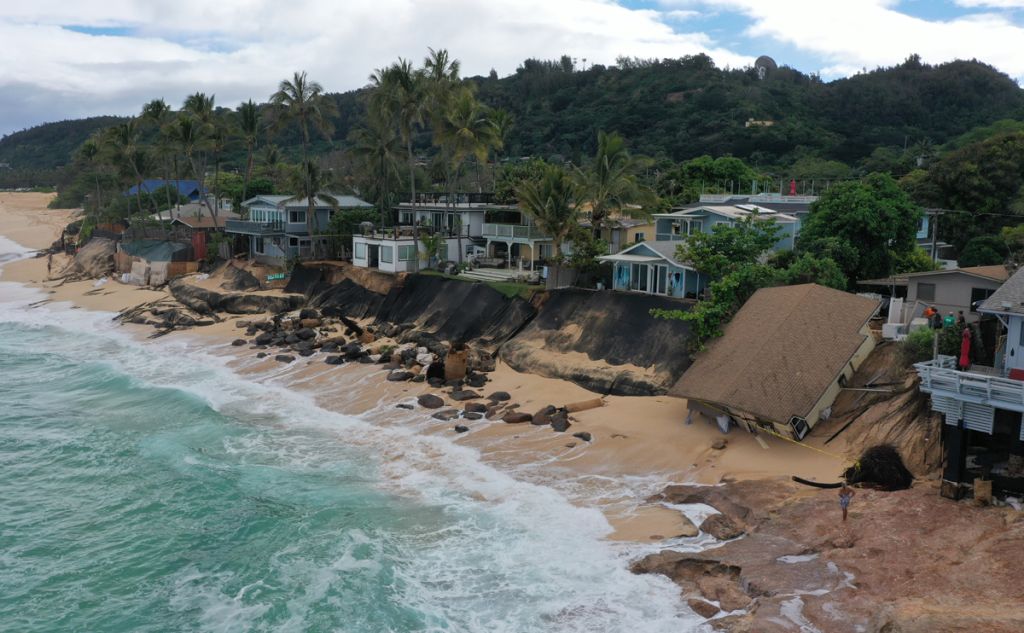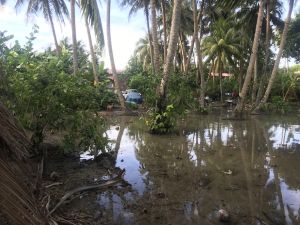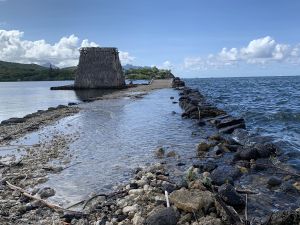Pacific Islands Sea-Level Rise Adaptation Science Dialogues
Building a Science-to-Action Network for Sea-Level Rise Adaptation Science
Sea-level rise adaptation science has advanced in Hawaiʻi and the US-Affiliated Pacific Islands (USAPI) to the point that resource managers, planners, and communities are readily using scientific information, tools, and guidance in decision-making and planning. However, better cooperation is needed among all parties to improve awareness, consistency, collaboration, and clarity about appropriate uses of research products, and to meet ongoing and emerging science information needs while maximizing shared capacity and avoiding duplication of efforts.

In response, PI-CASC and Hawaiʻi Sea Grant, along with university and government partners, conducted an initial series of Sea-Level Rise Adaptation Science Dialogues in 2021, bringing together focus groups from university and government science and resource management organizations to address the following goals:
- Share resources, goals, mandates, and capabilities for addressing sea-level rise science and adaptation needs in the Pacific Islands.
- Share recent, ongoing, and proposed research, products, and tools related to sea-level rise impacts and how they are informing planning and adaptation efforts in the region.
- Identify, understand, and plan how best to address various stakeholder uses and needs for sea-level rise adaptation science.
- Highlight and strengthen cooperation and collaboration among research organizations for actionable sea-level rise adaptation science and in pursuit of synergistic outcomes.



Resource managers and planners require actionable scientific information to prepare for increasing flooding impacts from rising tides and waves with sea-level rise. (Photos, L to R: American Samoa, Kelley Anderson Tagarino; Marshall Islands, Max Sudnovsky; Heʻeia, Oʻahu, Hawaiʻi, Rebecca Zamora)
Outcomes
Dialogue #1
Held online in May 2021, this meeting brought together a focus group of researchers and science organizations to share their recent and ongoing research and outreach efforts related to sea-level rise impacts in Hawaiʻi and the USAPI. Attendees began to identify areas for improved cooperation and synergy.
Products:
Agenda
Summary
In development: Pacific Islands Sea-level Rise Adaptation Science and Management Projects Explorer
Dialogue #2
Held online in July 2021, this second meeting expanded the focus group to include resource managers and government officials working in management and planning related to sea-level rise adaptation in the Pacific Islands. Dialogue #2 provided a platform to share and exchange SLR management and anticipated science needs with science and data providers.
Dialogue #3
Held online in September 2021, this third dialogue meeting brought the science organization focus group from Dialogue #1 back together with those participants from Dialogue #2 to discuss key takeaways and priorities from the previous meetings and identify next steps for building a sustained and expanded network to support sea-level rise science needs in the region.
Next Steps
Participants in the Sea-Level Rise Adaptation Science Dialogues discussed:
- Establishing and expanding a Pacific Islands Sea-Level Rise Science-to-Action Network (SLR STAN);
- Exploring opportunities for new capacity to manage and coordinate the Network;
- Publishing a feature or summary article based on dialogue outcomes;
- Developing an online information platform to share research and activities;
- Planning sea-level rise science-to-action symposia;
- Convening focused researcher-manager and researcher-policymaker dialogues;
- Expanding two-way communications to share and discuss Network and partner efforts.
CONTACTS
Brad Romine
University Consortium Deputy Director
romine@hawaii.edu
Heather Kerkering
Acting Federal Deputy Director/Science Coordinator
hkerkering@usgs.gov

